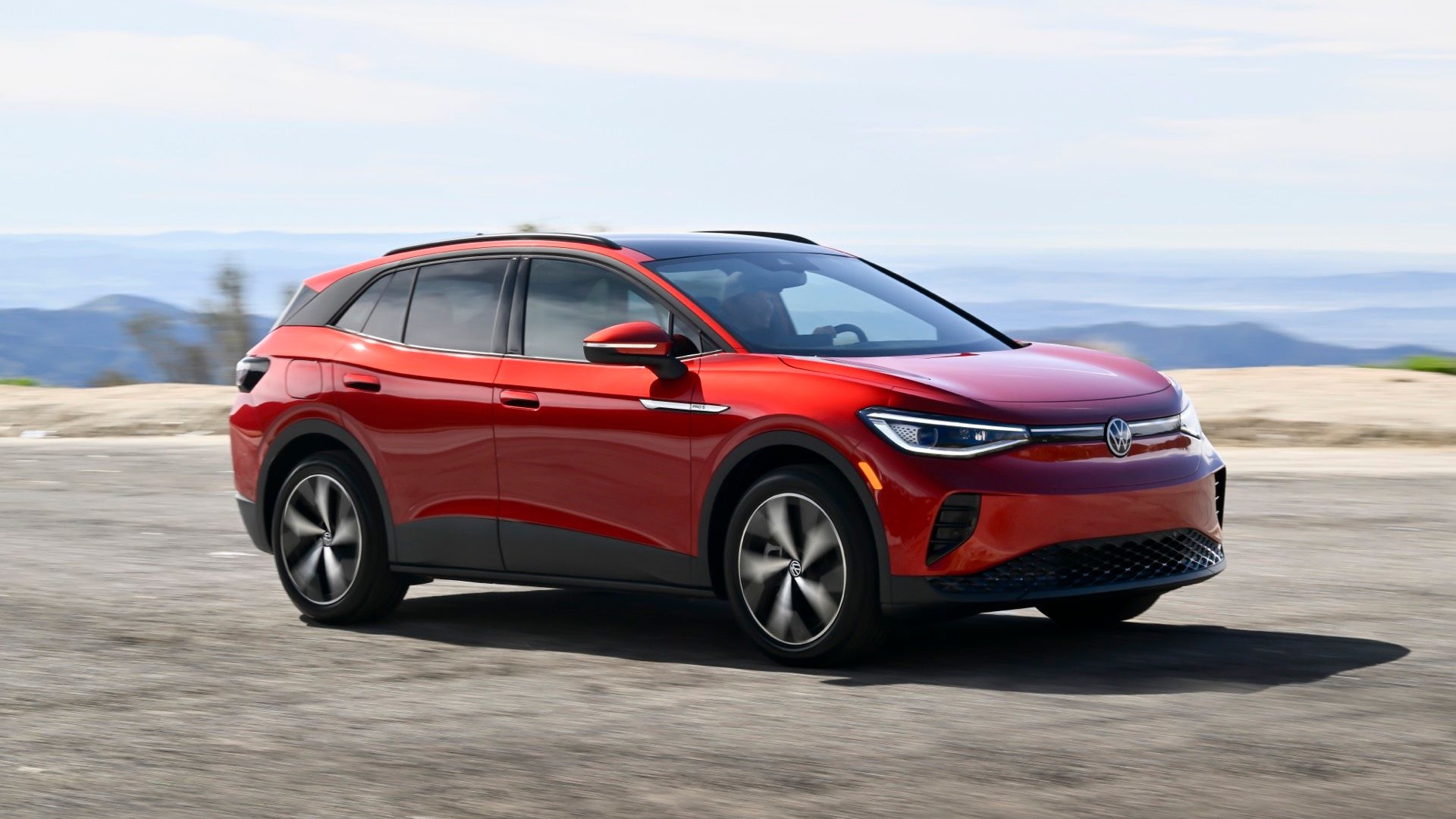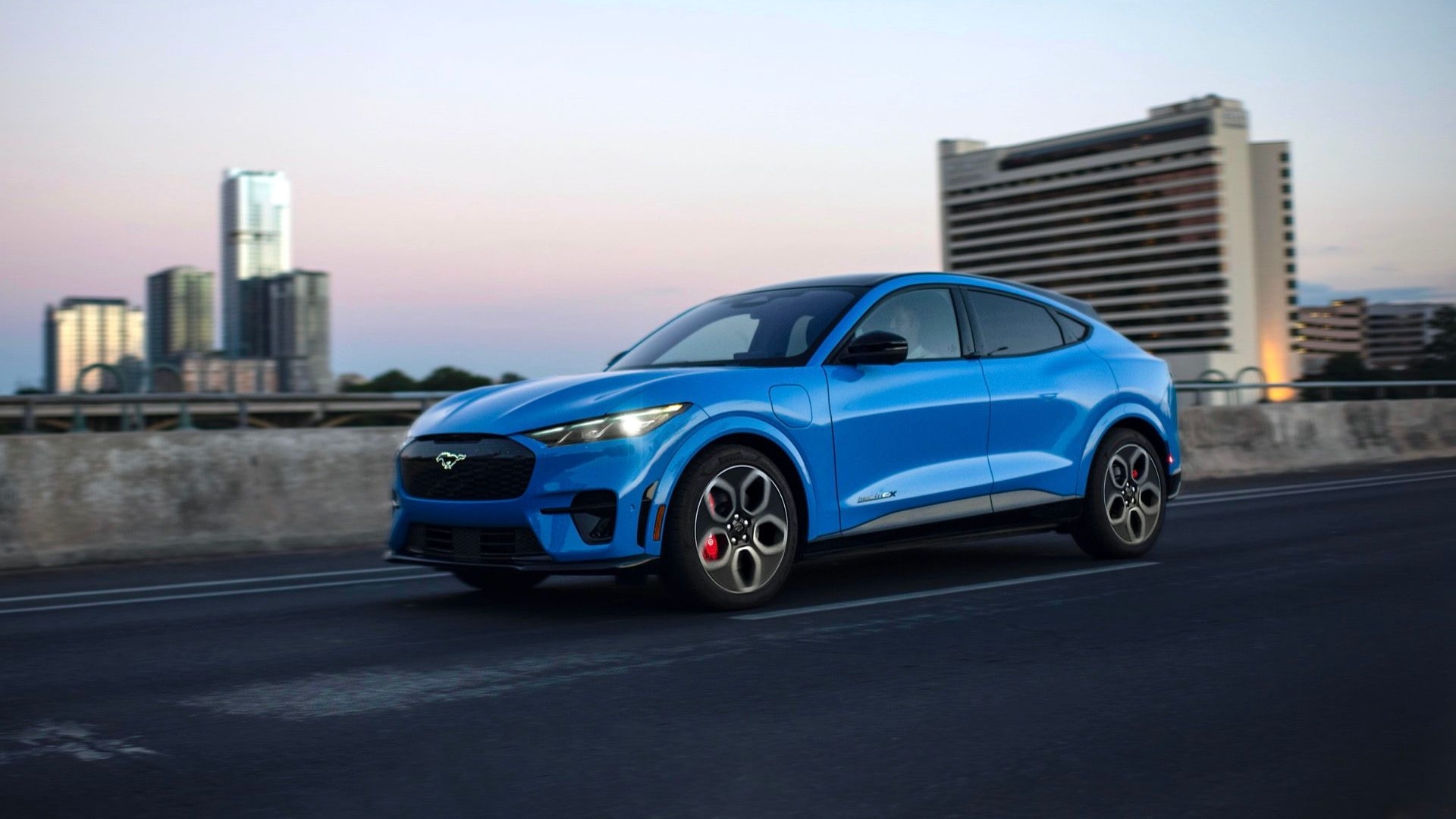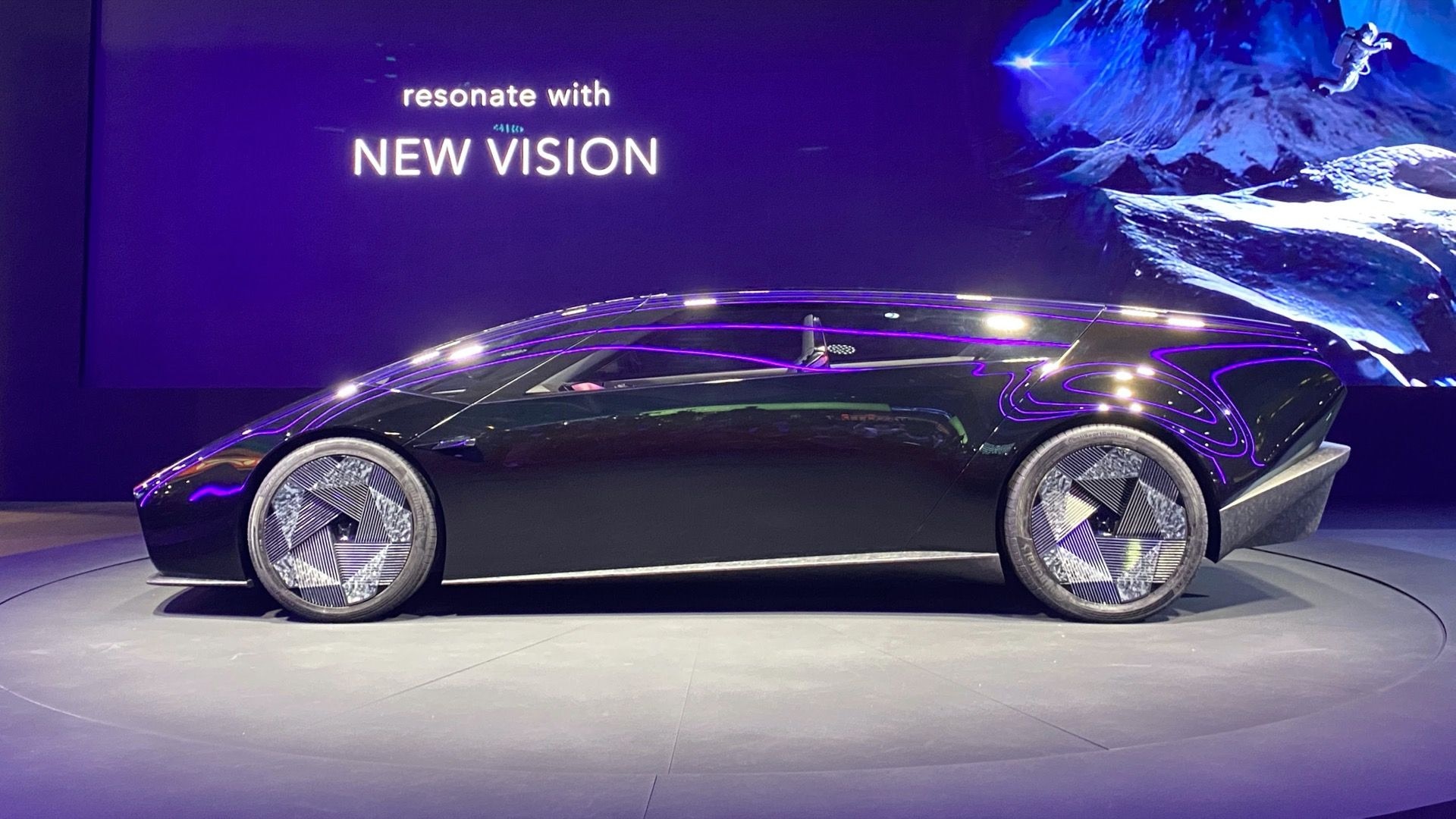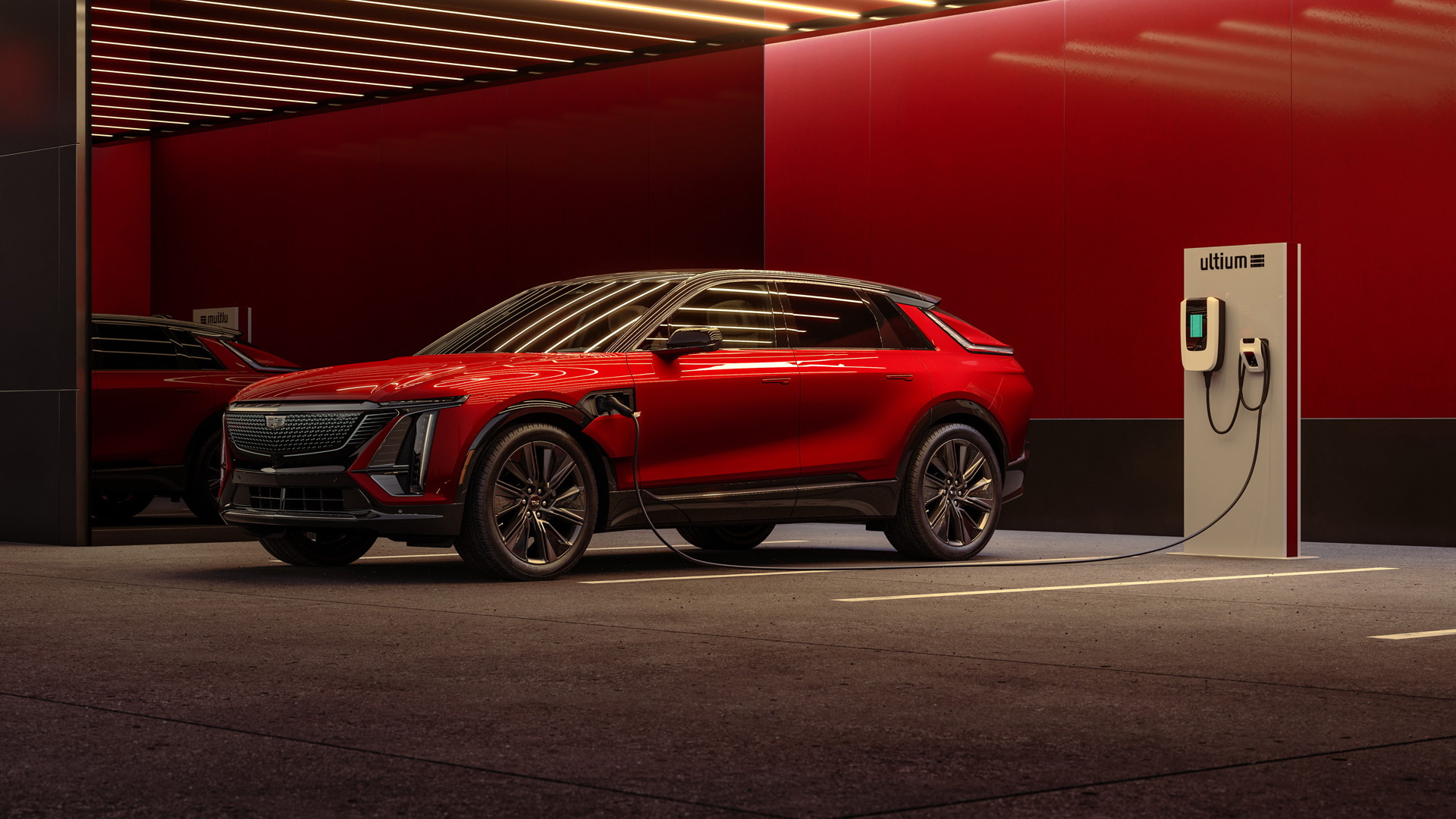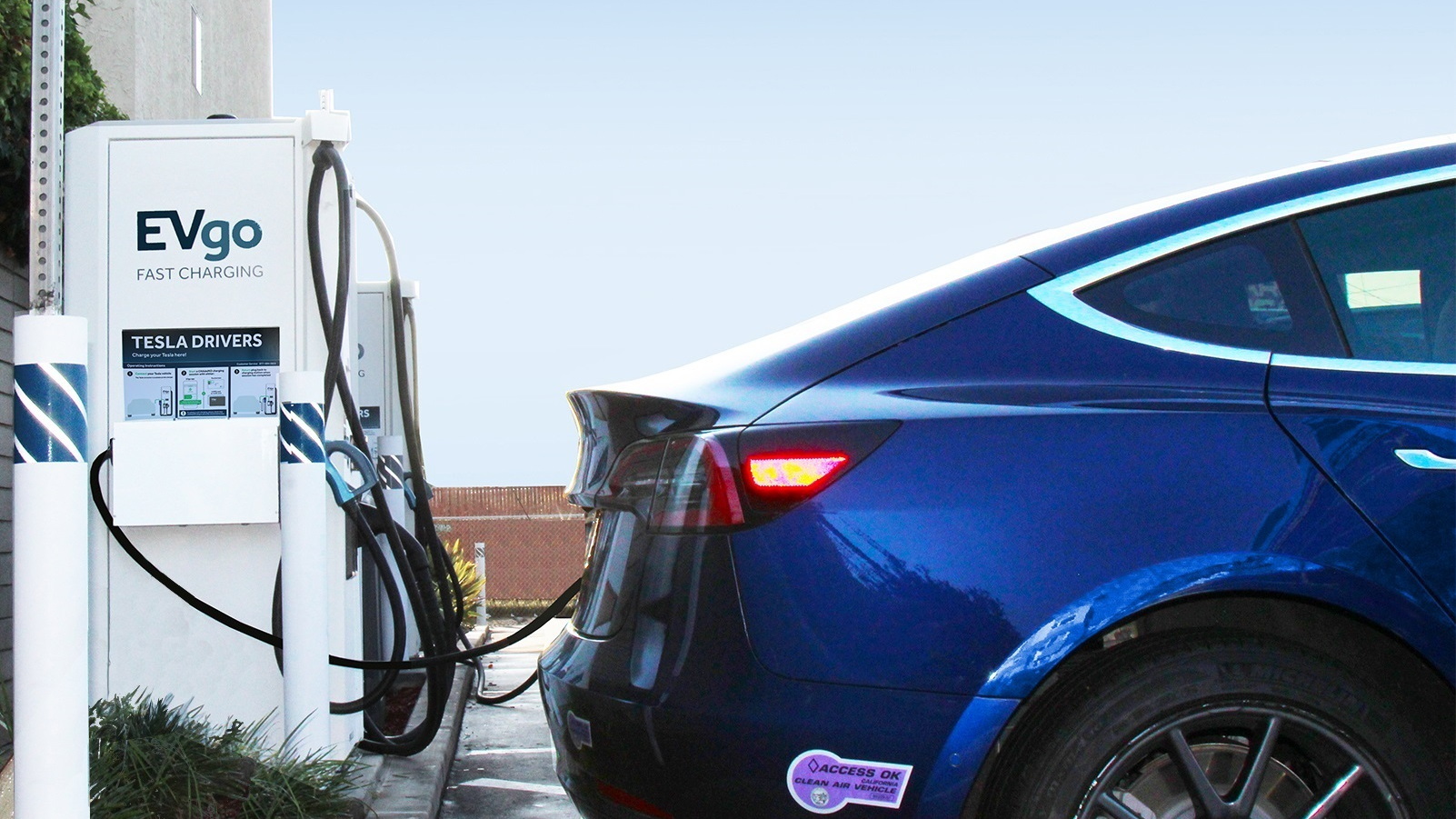Increasingly stiff limits on carbon emission and minimum fuel economy in most of the world's car markets mean that more plug-in electric cars must be sold.
With battery costs steadily falling and the pricetag rising for the new technologies that make cars more efficient, some now envision a world in which all new vehicles have dispensed with combustion engines.
It's a lovely vision, but it won't happen for decades, if ever.
DON'T MISS: Gasoline Engines Will Be With Us For Many Decades Yet, Really (Nov 2010)
Instead, gasoline engines will endure for many more decades, in smaller and far more efficient forms.
They'll often be paired with various types of electrification, from 48-volt enhanced start-stop systems to full plug-in hybrid powertrains.
That's the message offered by two executives from the major global parts supplier Continental, in an interesting Ward's Auto piece by Drew Winter.

2016 Toyota Prius, Catskill Mountains, NY, Dec 2015
Continental sells hybrid systems, along with many different subsystems for combustion engines, so it naturally has a particular point of view.
But the view is widely shared throughout the industry—even among some of the most ardent advocates of plug-in hybrid and electric vehicles.
With 80 million vehicles sold globally every year, and the global total "car parc" now over 1 billion vehicles, the emergence of electric cars to become a major part of the world's fleet will take decades.
ALSO SEE: Auto Industry Doing Fine In Meeting Gas-Mileage Goals, It Turns Out (Aug 2014)
Continental suggests that despite an upcoming mid-term review, rising corporate average fuel economy (CAFE) standards in the U.S. are likely to remain in place through 2025.
Even tougher standards in Europe and China will also likely stay put—but improvements to all facets of vehicle efficiency have thus far proven extremely effective in meeting those rising levels of efficiency.
From inexpensive 48-volt mild-hybrid systems to electric compressors that serve the function of turbochargers, an array of add-on technologies will combine with downsized engines to use less fuel without expensive high-voltage batteries and electronics, Continental says.
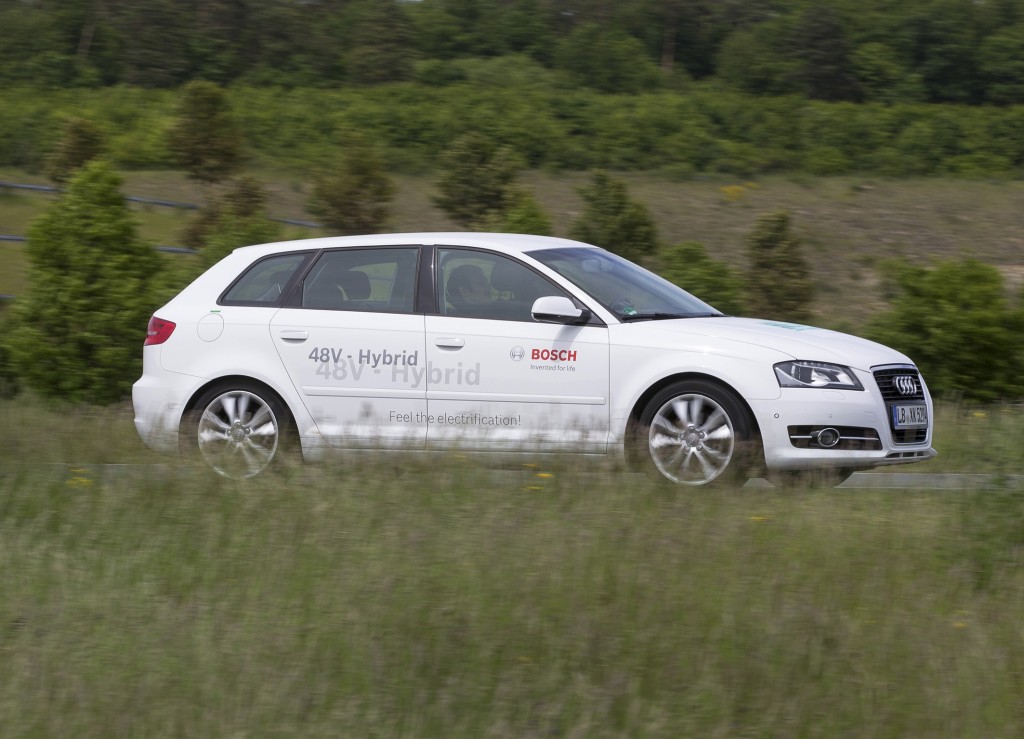
Bosch 48-volt mild hybrid
Information technology too will yield efficiency increases, as cars begin to communicate with each other and the infrastructure.
One example: a so-called E-Horizon system that's already in use on big trucks, giving a 3- to 5-pecent efficiency improvement.
Such a system knows when traffic lights are about to change from red to green, even before the driver can see them, eliminating unnecessary engine slowing down and speeding up—and anticipating hills and valleys to maximize fuel efficiency.
CHECK OUT: Electric-Car Future Is Coming, Just More Slowly Than Predicted: Consensus
The Continental executives acknowledge that electrification of powertrains will continue to grow. They note that it "will come in a lot more flavors," meaning less expensive systems than full hybrid powertrains.
They also note that ultimately, gasoline engines will likely have to be fitted with the same kinds of exhaust aftertreatment systems now fitted to diesels, to control emission of very fine particulates.
But from now through the end of the next decade, engines that burn fossil-fuel gasoline—and diesel from a variety of sources—will remain dominant, despite the most Utopian scenarios of advocates, legislators, and fans.
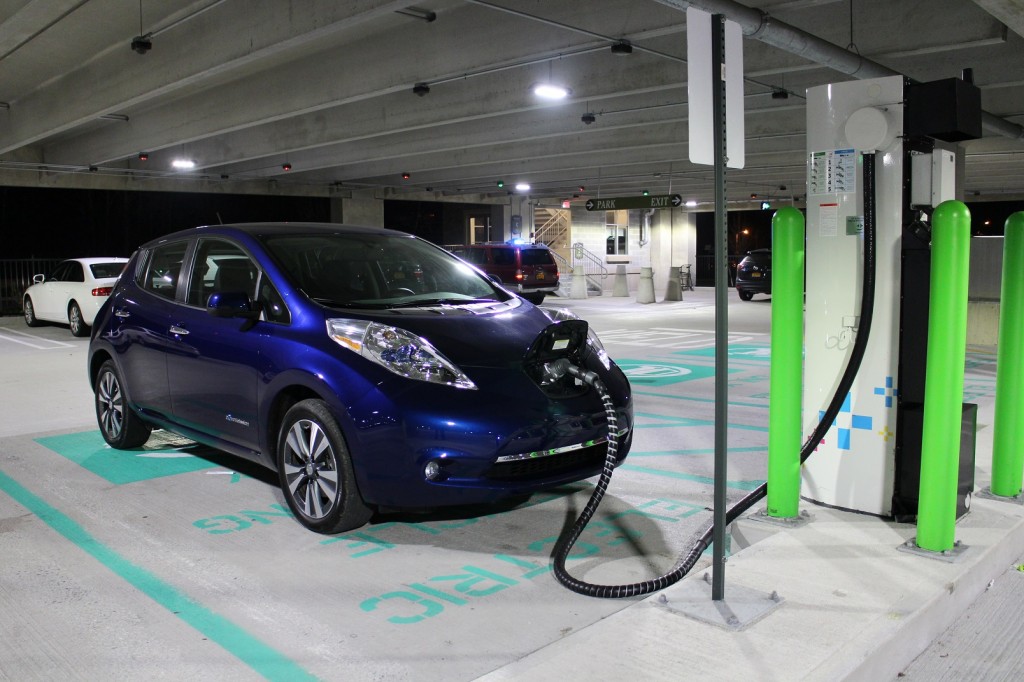
2016 Nissan Leaf SL fast-charging at NRG evGo Freedom Station, Hudson Valley, NY, Dec 2015
For cars that run for some or all their range on batteries, of course, consumer tipping points may come in some regions, markets, and buyer segments.
But global production capacity for lithium-ion batteries alone will lkely constrain the growth of electric cars from now through 2030.
After that, perhaps, we can revisit the scenarios.
_______________________________________








